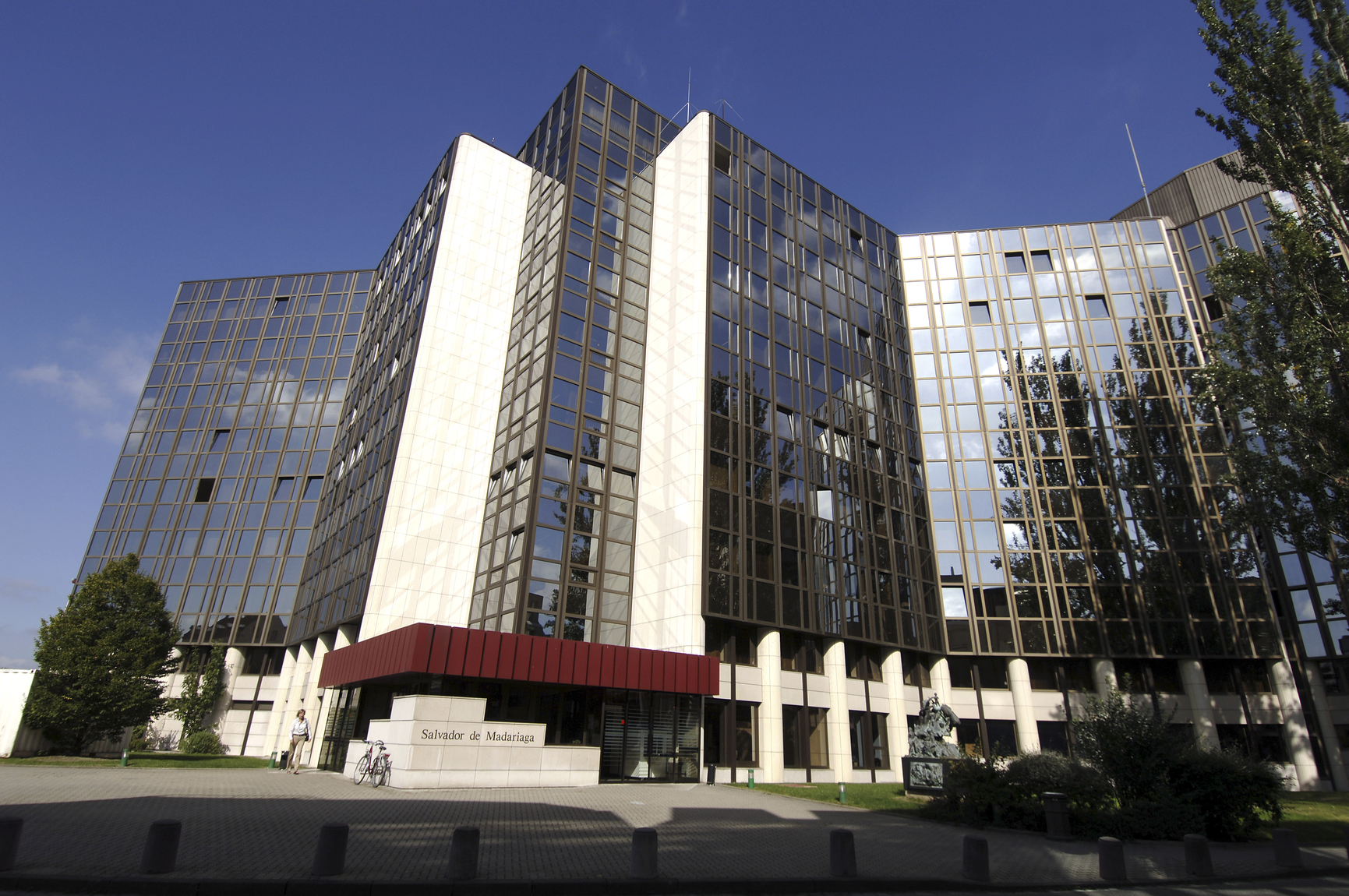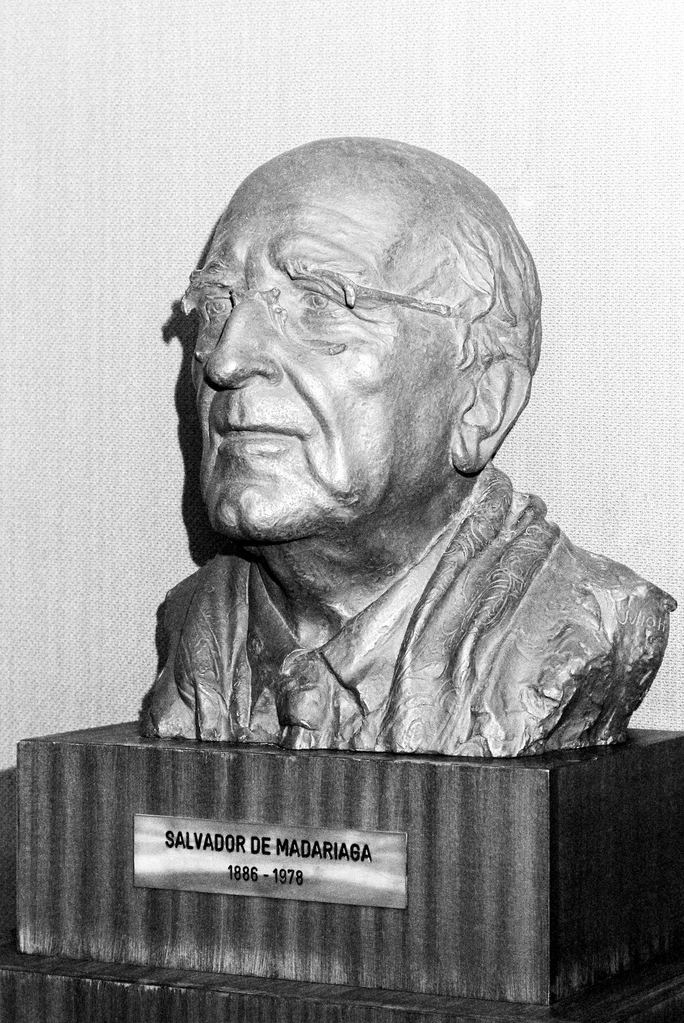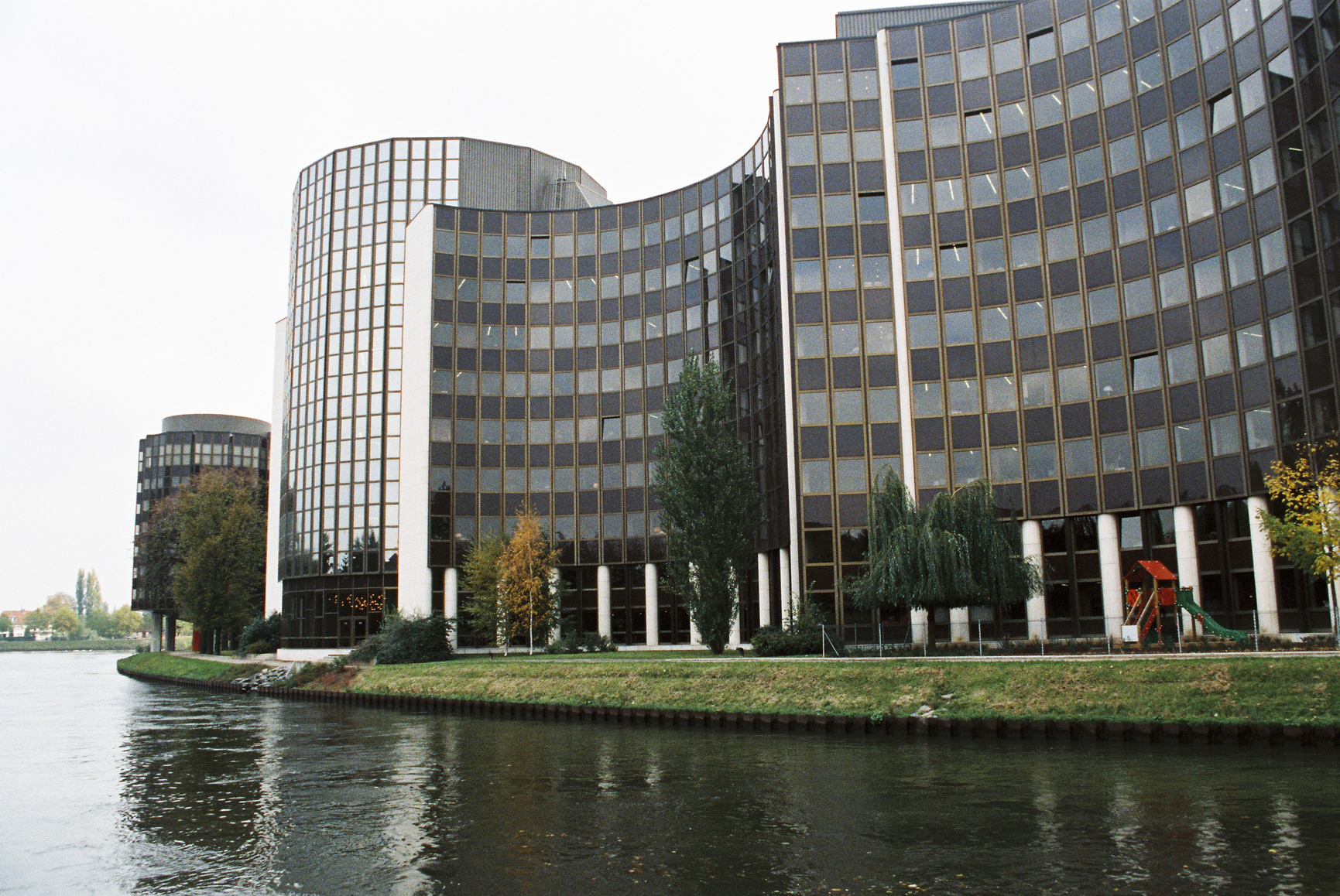 Outside view on the European Parliament building Salvador de Madariaga in Strasbourg © European Union - EP © Architect: Architecture Studio
Outside view on the European Parliament building Salvador de Madariaga in Strasbourg © European Union - EP © Architect: Architecture Studio
A statesman renowned for his pacifism and keen intelligence
He is not one of the best known Europeans and yet one of the buildings in Strasbourg is named after him: the Salvador de Madariaga Building houses Parliament offices and meeting rooms, as well as the offices of the European Ombudsman. In casting an eye over the life of Salvador de Madariaga, we hope to lift the veil covering a committed pacifist whose role in the founding of what is now the European Union was played out far from the limelight surrounding the distinguished founders featured previously in this historical series.
Salvador de Madariaga was born in 1886 in La Coruña in Galicia, Spain, one of three children, all boys. He came from an eminent Spanish family. His father was an officer in the Spanish army, who believed Spain had been defeated by the United States in the 1898 Spanish-American war because it was technologically backward. As a result, he encouraged his son to get an international technical education and urged him to study engineering. In 1911 Madariaga graduated from the École des Mines (‘Polytechnique’) national school of mining engineering in Paris and began his career as an engineer in northern Spain at the ‘Compañía de los Caminos de Hierro del Norte de España’ railway company, before moving to London in 1916 to work as a journalist. In 1921, Madariaga joined the Secretariat of the League of Nations in Geneva, where he soon became Head of the Disarmament Section.
 Sculpture of Salvador de Madariaga at the European Parliament in Strasbourg © European Communities 1986
Sculpture of Salvador de Madariaga at the European Parliament in Strasbourg © European Communities 1986
The League of Nations
Madariaga’s memoirs, written when he was 80 years old and covering the period from 1921 to 1936, provide an insight into the spirit reigning at the League and how it operated internally. They are chiefly memories of how things were, rather than official records; most of his personal documents were destroyed when Franco took control of Madrid, where Madariaga had a house and an office. Nonetheless they paint a vivid picture of the period and of how this global institution functioned before the UN took its place (and in the same buildings!).
Salvador de Madariaga left the League of Nations Secretariat in 1928, because it had appointed a fascist civil servant to a key position. Writing on this appointment, he said ‘aquí comenzó el descenso del Secretariado’ [the decline of the Secretariat began here]. He moved far from the corridors of power to become Professor of Spanish Literature at the University of Oxford.
His life in exile
In 1931, during the Second Spanish Republic, Madariaga became first an MP, then Minister for Public Education (1931-1934), Minister for Justice (1934), and then Spain’s Ambassador to the United States and to France. He represented Spain at the League of Nations on many occasions.
When Franco rose to power, Madariaga resigned and went to live abroad, mainly in Britain and Switzerland, where he taught and dedicated himself to writing and journalism. He devoted his energies to countering the forces of the aggressive nationalism that had undermined the running of the League of Nations. As he wrote, ‘Si la paz y el espíritu europeo han de mantenerse vivos, se precisarán muchos más ciudadanos del mundo y más europeos como yo he tratado de ser’ [Many more citizens of the world and Europeans - such as I have tried to be - will be needed if peace and the European spirit are to remain alive].
Madariaga’s first writings on Europe date from the end of the 1930s. In 1939, in ‘Le Grand Dessein’, he called for the creation of a Union of Europe which he saw as an intermediate stage in the construction of a universal union, a world republic. In 1952, he praised the continent’s cultural wealth in ‘L’Esprit de l’Europe’.
The establishment of the Council of Europe
Salvador de Madariaga also campaigned for the European cause. In May 1948, he chaired the Cultural Committee at The Hague Congress, whose work led to the establishment of the Council of Europe. He went on to head up the cultural section of the European Movement. It was in this capacity that he chaired the European Conference on Culture in Lausanne in 1949.
He was one of the founders of the College of Europe in Bruges - the oldest post-graduate training institution specialising in European studies. In 1973 he was awarded the Charlemagne Prize in recognition of his contribution to understanding in Europe. A pacifist to his very core and deeply respectful of the rights and freedoms of individuals, Madariaga did not return to Spain until 1976, after Franco’s death. He died two years later, aged 92.
 The Salvador de Madariaga building in Strasbourg © European Communities 1993
The Salvador de Madariaga building in Strasbourg © European Communities 1993